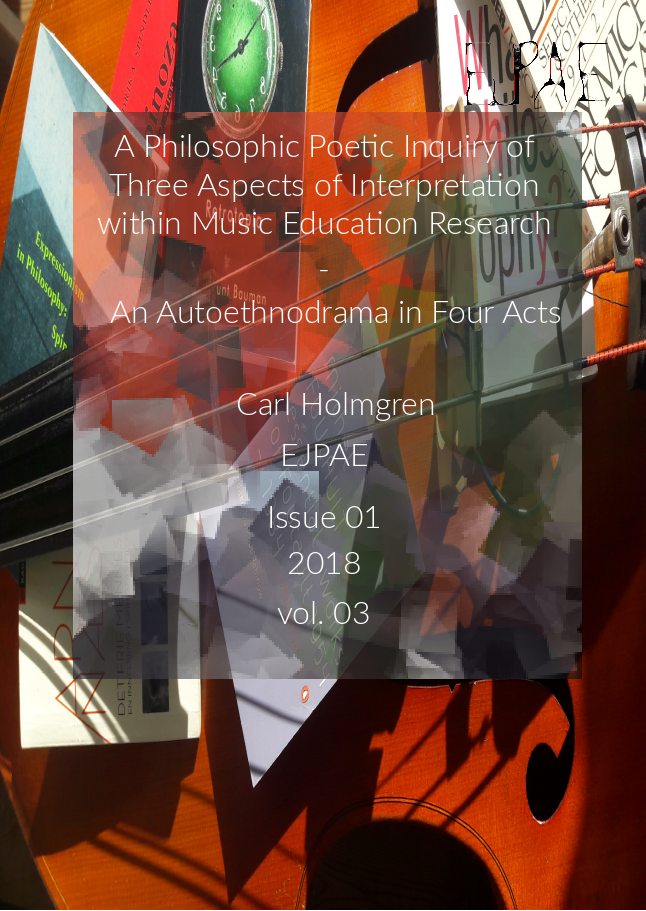A Philosophic Poetic Inquiry of Three Aspects of Interpretation within Music Education Research
An Autoethnodrama in Four Acts
DOI:
https://doi.org/10.5281/zenodo.4299797Keywords:
Arts-based research, autoethnodrama, interpretation, musical interpretation, hermeneutics, poetry, poetic inquiry, translation, Western art music, philosophy of science, ELIZAAbstract
This article explores three aspects of interpretation—musical interpretation of notated Western art music, hermeneutics (theoretical framework), and poetry (tool for analysis and representation)—based on ongoing music education research focusing on the learning of musical interpretation within the one-to-one context of higher music education. The broad philosophic poetic inquiry of interpretation has the form of an autoethnodrama containing both haiku and found poetry. Poetry is both used as a process of inquiry and as a means of representation. The autoethnodrama explores the author’s struggle with finding his cogito for conducting arts-based research and touches upon his personal history. Through the combination of autoethnodrama and a philosophic poetic inquiry, he finds a deeper understanding of musical interpretation, usage of poetry and autoethnodrama in research, as well as of his personhood. Concluding reflections on one possible way of interpreting the autoethnodrama in relation to teaching and learning of musical interpretation within higher music education are also presented.

Downloads
Published
Issue
Section
License
Copyright (c) 2018 European Journal of Philosophy in Arts Education

This work is licensed under a Creative Commons Attribution 4.0 International License.
EJPAE provides immediate open access to all its published content. Users do not need to register or pay to read content.
https://creativecommons.org/licenses/by/4.0/
Authors of content published in European Journal of Philosophy in Arts Education (EJPAE) retain the copyright to their works. Content is free to be used by anyone as long as you "[...] give appropriate credit, provide a link to the license, and indicate if changes were made. You may do so in any reasonable manner, but not in any way that suggests the licensor endorses you or your use." and "No additional restrictions — You may not apply legal terms or technological measures that legally restrict others from doing anything the license permits." (from the Creative Commons licence agreement)
EJPAE does not charge any author or publication fees.
Authors are encouraged to deposit the final published version of their article for self-archiving (author's personal website) and/or archiving in an institutional repository immediately upon publication.




